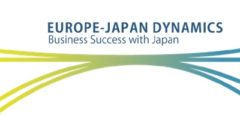I have just finished viewing a vodeo of a TV program of Dr. Joe Stiglitz. It was ” Future of Capitalism“, a live casting of C-Span, Washington Journal, on air on 27 June, 2010. Dr. Stiglitz is a former Chief Economist of World Bank and a Nobel Prise winner of Economics in 2001.
Despite limited opportunities for me to encounter Dr. Stiglitz, I was impressed by him since the first time when I came to know him at the World Economics Forum (or Davos Conference) in 2009.
He has passion!
I felt the same in the video of “Future Capitalism”. After his lecture for 15 minutes or so, Dr. Stiglitz answered to a number of questions from the program viewers who called the studio. The viewers seemed to ne US citizens, not neccessarily professional economists. In a way to answer the quesitons, Dr. Stiglitz elaborated his point on pros and cons of policy instruments by the US Government to help the economy to turn to the growth path again.
He explained professional subjects in comprehensive words.
How nice it is anyone could ask questions to the first class economist!
How nice it is that those viewers appear not to hesitate to ask questons to Dr. Stiglitz!
Dr. Stiglitz answered to the questions from citizens very frankly and comprehensively.
I see here a valuable advantage of a society where there is little, if any, social hierarchy. Having little constraints in thinking is a source of innovative ideas. In this sense, I think the US society still healthy.
It is not the first time when I find his passion in his speeches and manuscripts.
I was taught at schools that economics was a pure science, and therefore it would mislead the understanding of macro and micro economies if one used emotional intelligence in the analyses economics. On the contrary, the arguments of Dr. Stiglitz are convincing as they were are on theory and his understanding of human feelings, e.g. mistrust to banks, fear to the future, etc. He explains the present economic situation based on theory and observation of the people in the real world, from consumers to office and blue-collar workers. I find in his arguments an underlying passion to save people by means of an appropriate economic policy.
A major reason why I respect Dr. Stiglitz is that he has a good mixture of passion and theory. I believe such mixture indispensable to make a theory works to help people and society.





